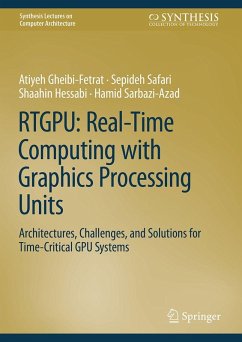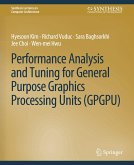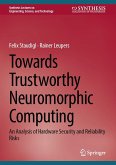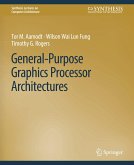This is a comprehensive and forward-thinking book that addresses one of the most pressing challenges in modern computing: how to leverage the immense computational power of GPUs within the stringent constraints of real-time systems. As industries demand faster, smarter, and more responsive technologies-autonomous vehicles, robotics, edge AI, and cyber-physical systems-the ability to deliver deterministic performance on inherently non-deterministic hardware becomes critical.
This book dives deep into the architectural mismatch between GPUs and real-time requirements, unravelling the complexity of preemption limitations, variable execution times, synchronization bottlenecks, and resource contention. It presents a unified view of the field, combining foundational knowledge with state-of-the-art solutions, ranging from innovative scheduling algorithms and multitasking frameworks to power-aware design strategies and emerging hardware paradigms.
Clear, rigorous, and research-driven, this book is an essential reference for computer scientists, embedded systems engineers, and academic researchers looking to design the next generation of real-time, GPU-accelerated systems. It doesn't just review the field-it defines it.
This book dives deep into the architectural mismatch between GPUs and real-time requirements, unravelling the complexity of preemption limitations, variable execution times, synchronization bottlenecks, and resource contention. It presents a unified view of the field, combining foundational knowledge with state-of-the-art solutions, ranging from innovative scheduling algorithms and multitasking frameworks to power-aware design strategies and emerging hardware paradigms.
Clear, rigorous, and research-driven, this book is an essential reference for computer scientists, embedded systems engineers, and academic researchers looking to design the next generation of real-time, GPU-accelerated systems. It doesn't just review the field-it defines it.








